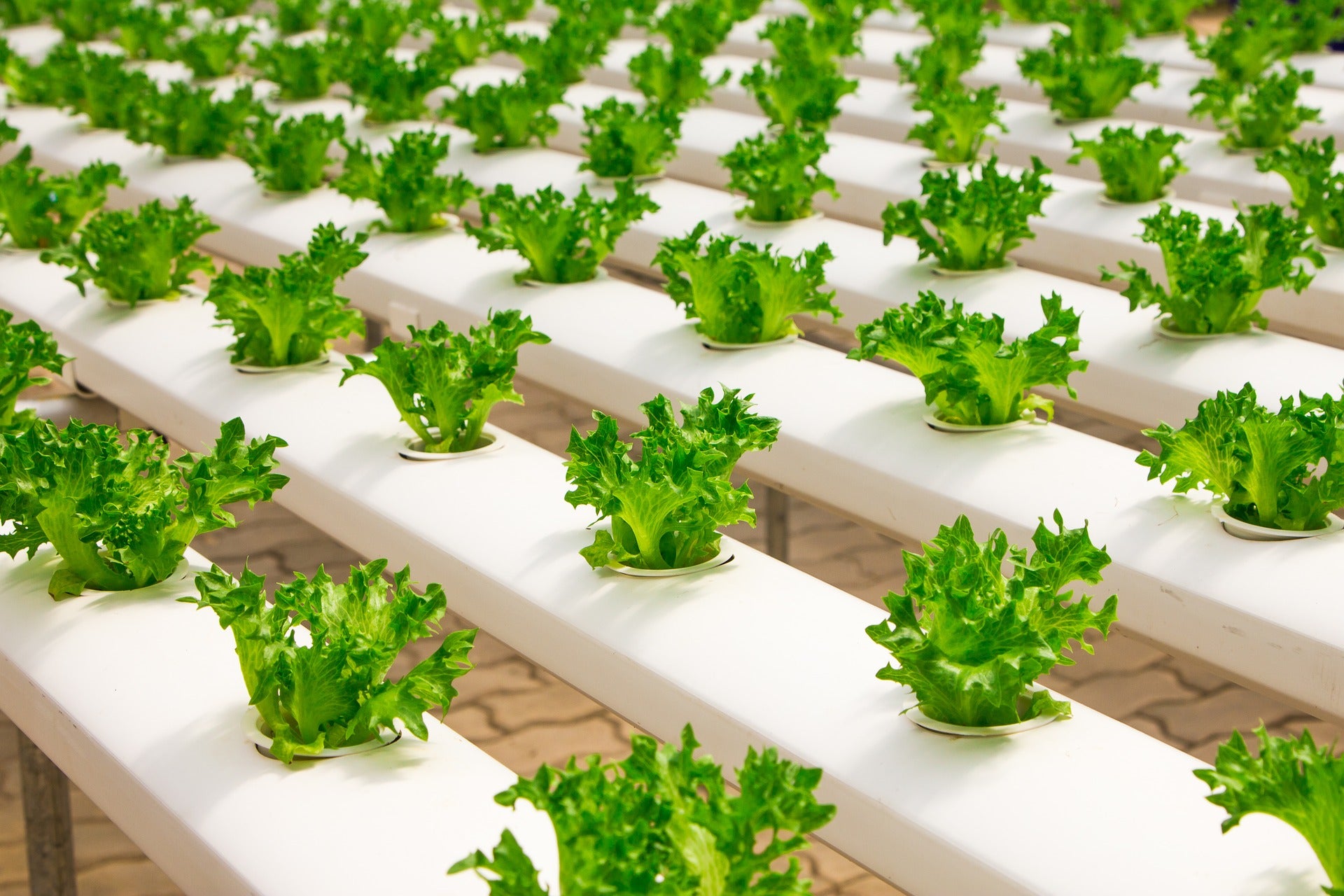The future of food and nutrition will be realized through innovations in knowledge sharing and the growth of scientific discovery, none of which can be achieved without an emphasis on cross-disciplinary collaboration. The Friedman School is proud to hold events each year that encourage great minds to come together, and create space for differing opinions, academic debate, and a diversity of voices on the cutting edge of nutrition science and policy. Events hosted by The Friedman School in the past year have launched crucial dialogues, and fostered fruitful alliances across the disciplines of nutrition science and policy. Our special initiatives and the trusted voices of our faculty and researchers have further cemented our reputation as an institution at the forefront of generating not only trusted science but real world impact.
Food Tank Summit: Investing in Discovery
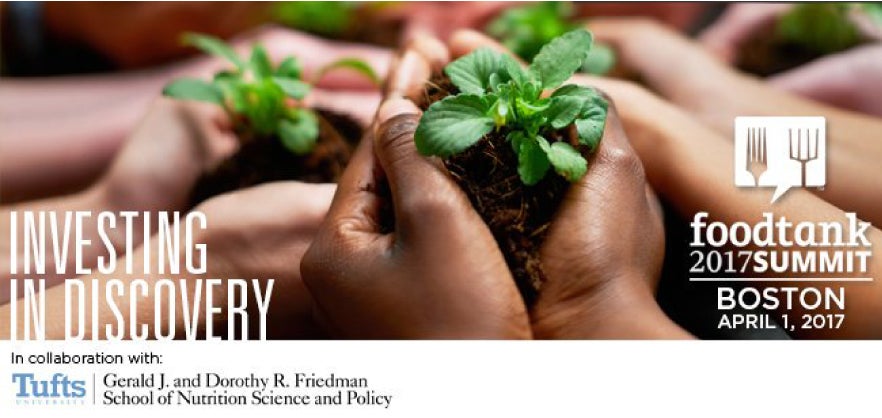
Danielle Nierenberg, N01, could see smart ways that we could feed the hungry, fight obesity and still preserve the environment. She just needed a lot more people to know about them. So she quit her job, took $6,000 of her savings and set out to see if a global network of concerned citizens—from academics and farmers to activists and moms and dads—could help build a more sustainable, nutritious food system. In 2013, Nierenberg founded Food Tank: The Think Tank for Food, quickly building a worldwide social media and online following of more than 500,000 people from 190 countries in just four years. As president, Nierenberg, an alumna of the Friedman School’s Agriculture, Food and Environment Program, uses Food Tank to promote environmentally sustainable ways of alleviating hunger, obesity and poverty.*
Food Tank regularly holds Summits that bring together some of the world’s most impactful food system leaders, and fascinating speakers in interactive panels moderated by top food journalists. The outcomes of each Summit are manifold: nutrition communicators are given the opportunity to go directly to the source- the leaders of industry whose decisions affect the health and well being of so many consumers; policy makers enter into discussion with academics, researchers, and laypeople. The Food Tank Summits support an important exchange of ideas and information that is crucial to moving nutrition science and policy forward by engaging stakeholders all across the spectrum of research, policy, communication, and health.
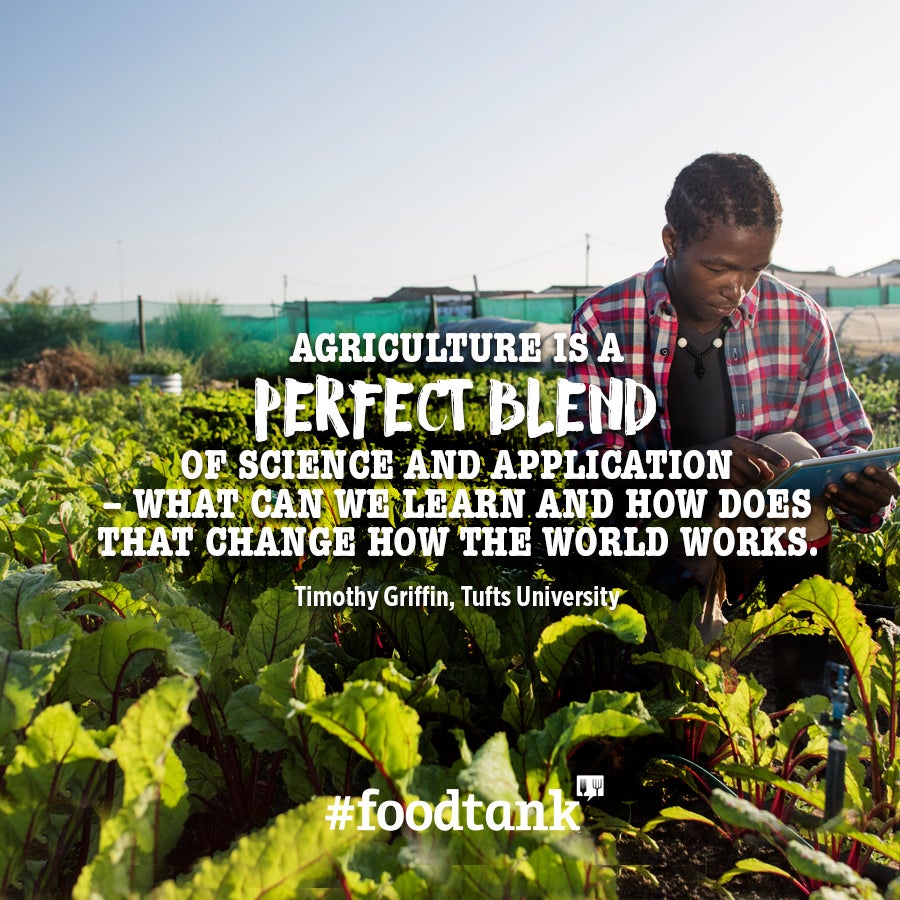
This past April, The Friedman School collaborated with Food Tank and Oxfam America, to host Boston's inaugural Food Tank Summit, "Investing in Discovery," on our campus in Boston. The event featured more than three dozen speakers, including Boston chef Jody Adams; U.S. Rep. Jim McGovern, D-Mass., co-chair of the House Hunger Caucus; Tufts faculty members; food company reps; and a California rancher and pork producer.
Interactive panel topics included:
- The True Value of Food
- Farming Differently
- Are We Becoming Nutrient “Dense”? (Presented by Naked Juice)
- Creating Better Food Access
- Farm and Food Innovations
Last year, more than 30,000 people livestreamed the conferences and events hosted by Food Tank.
The Gershoff Symposium
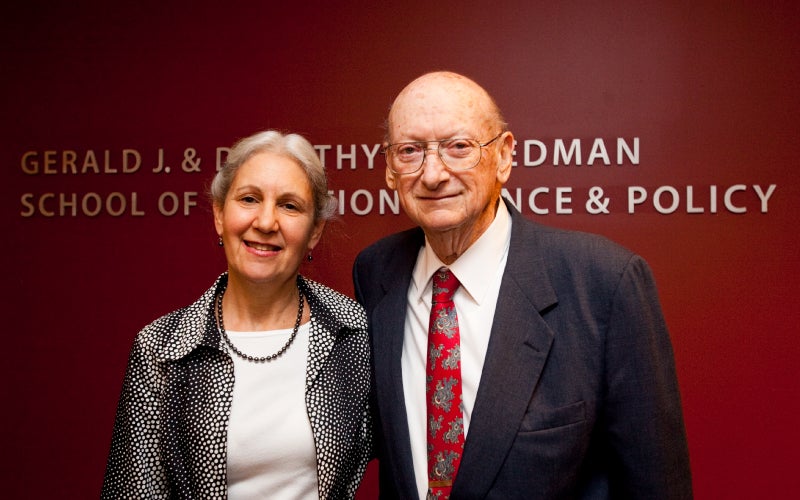
The Annual Gershoff Symposium addresses contemporary topics in the field of nutrition, and is held at the Friedman School of Nutrition Science and Policy in honor of Dean Emeritus Stanley N. Gershoff, PhD. Each year a group of students gathers to determine the Symposium's theme, organize logistics, and choose the invited speakers. An outstanding roster of panelists spoke this year on the topic of “Next Generation Food Production.”
- Caleb Harper, Principal Investigator and Director, Open Agriculture (OpenAg) Initiative, MIT Media Lab: “Eating Digital: The Fourth Agricultural Revolution”
- Yashar Saghai, Ph.D., Research Scholar and Associate Faculty, John Hopkins Berman Institute of Bioethics: “Ethics and Global Food Futures: Mapping the Terrain”
- Isha Datar, Executive Director, New Harvest: “From Lab to Table: Past, Present & Future of Cellular Agriculture”
- Ricardo Salvador, Ph.D., Program Director, Food and Environment Program, Union of Concerned Scientists: “Traditional Agriculture: The Continuum of Sustainable Agriculture from its Inventors into the Future”
Annual Student Research Conference (SRC)
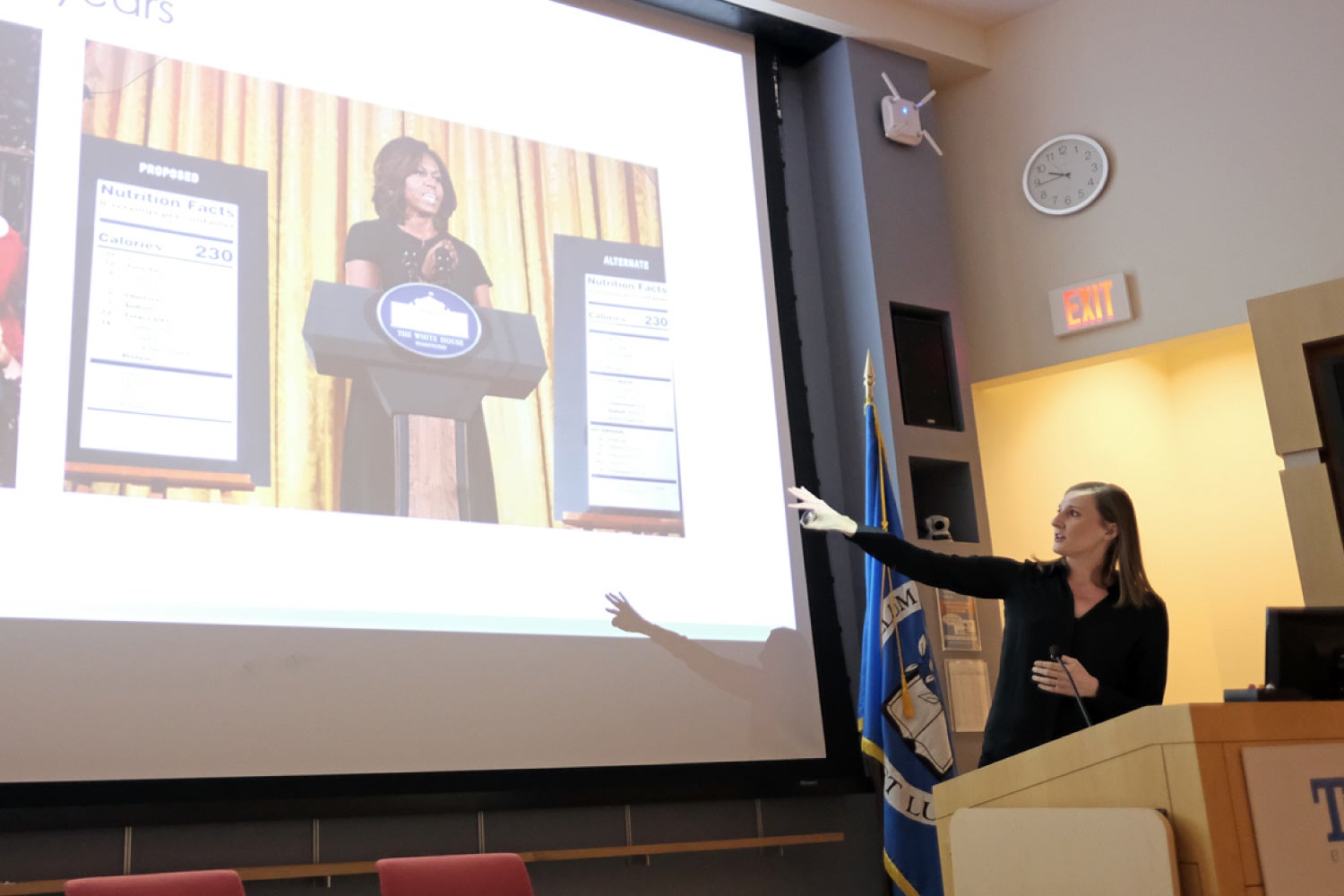
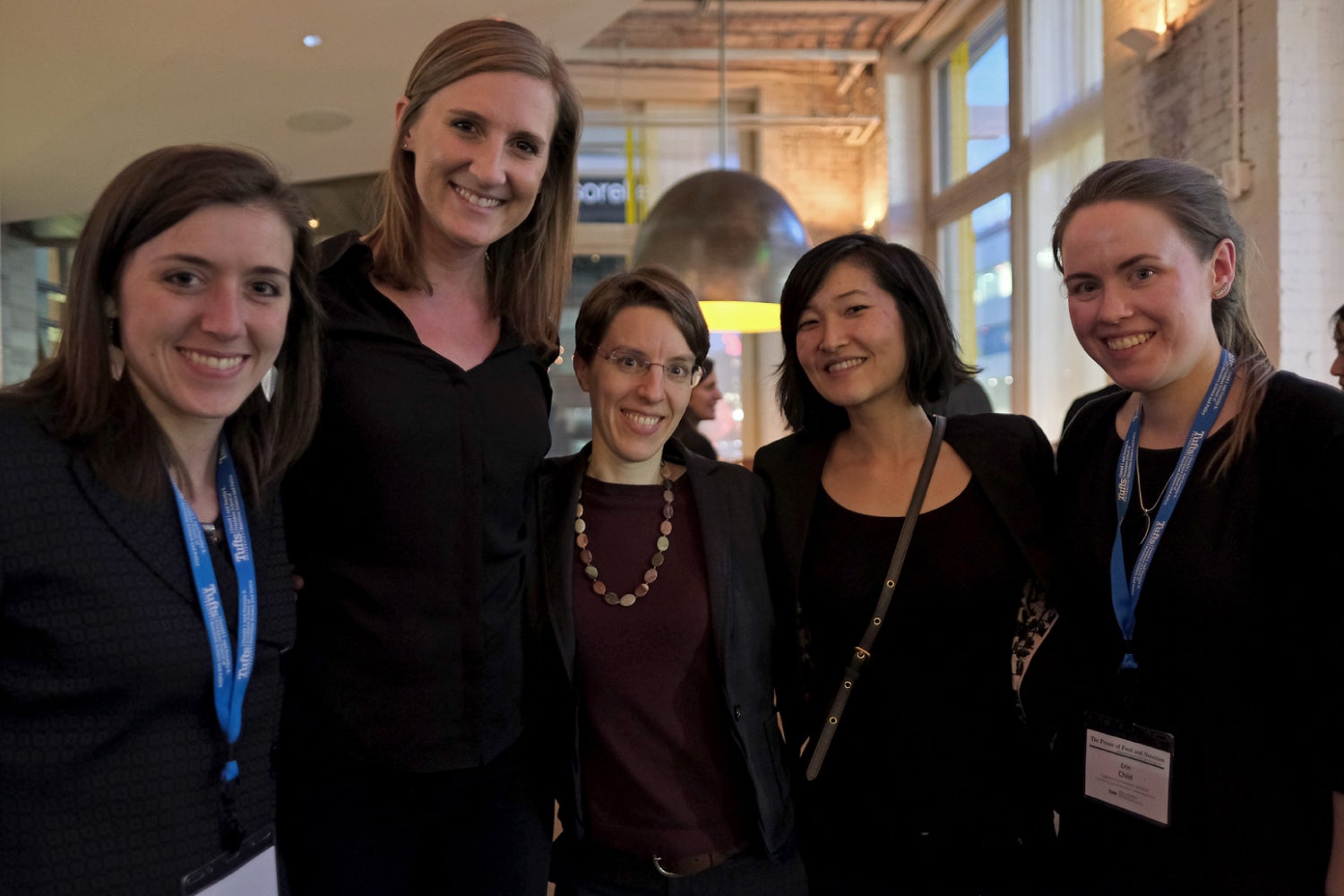
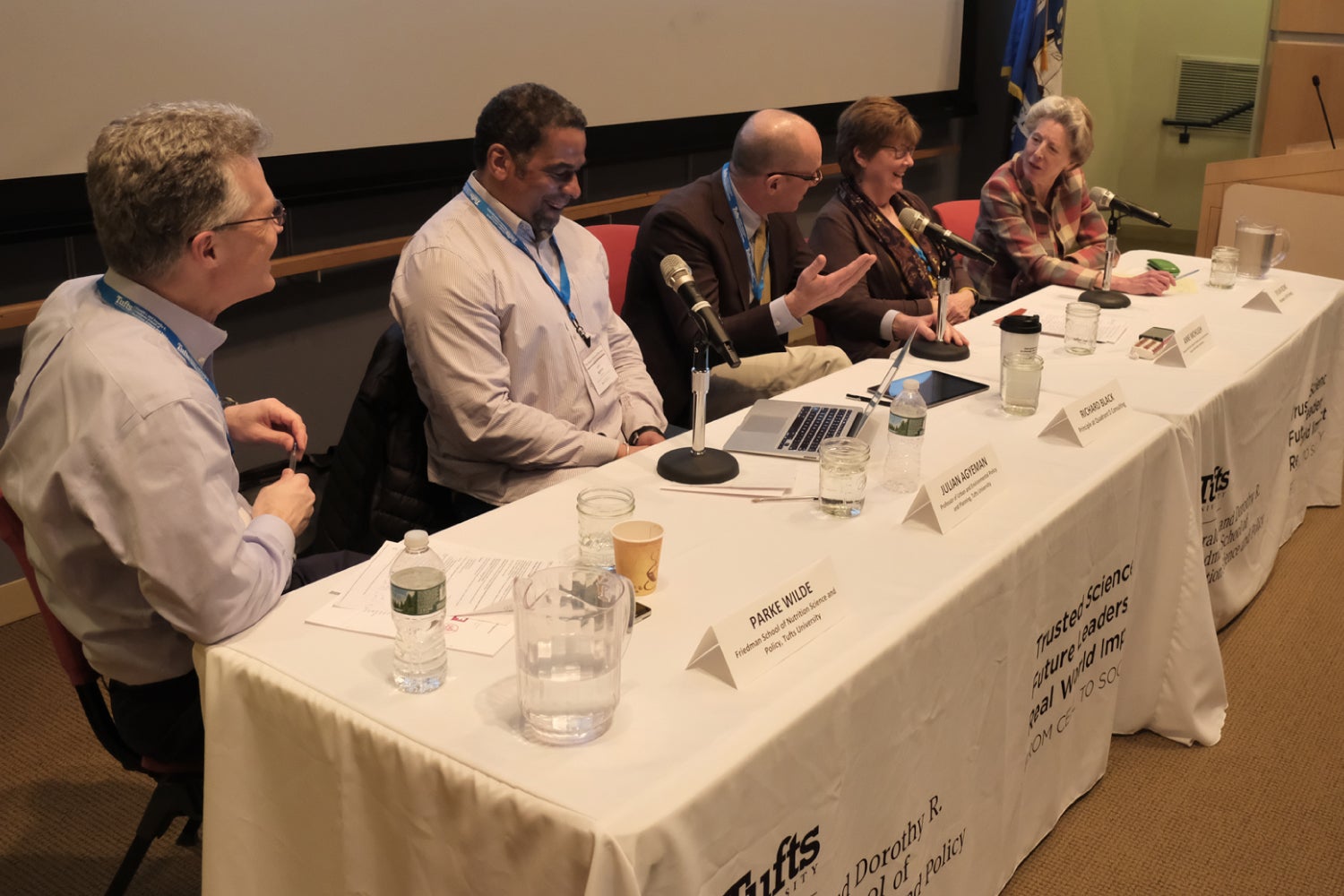
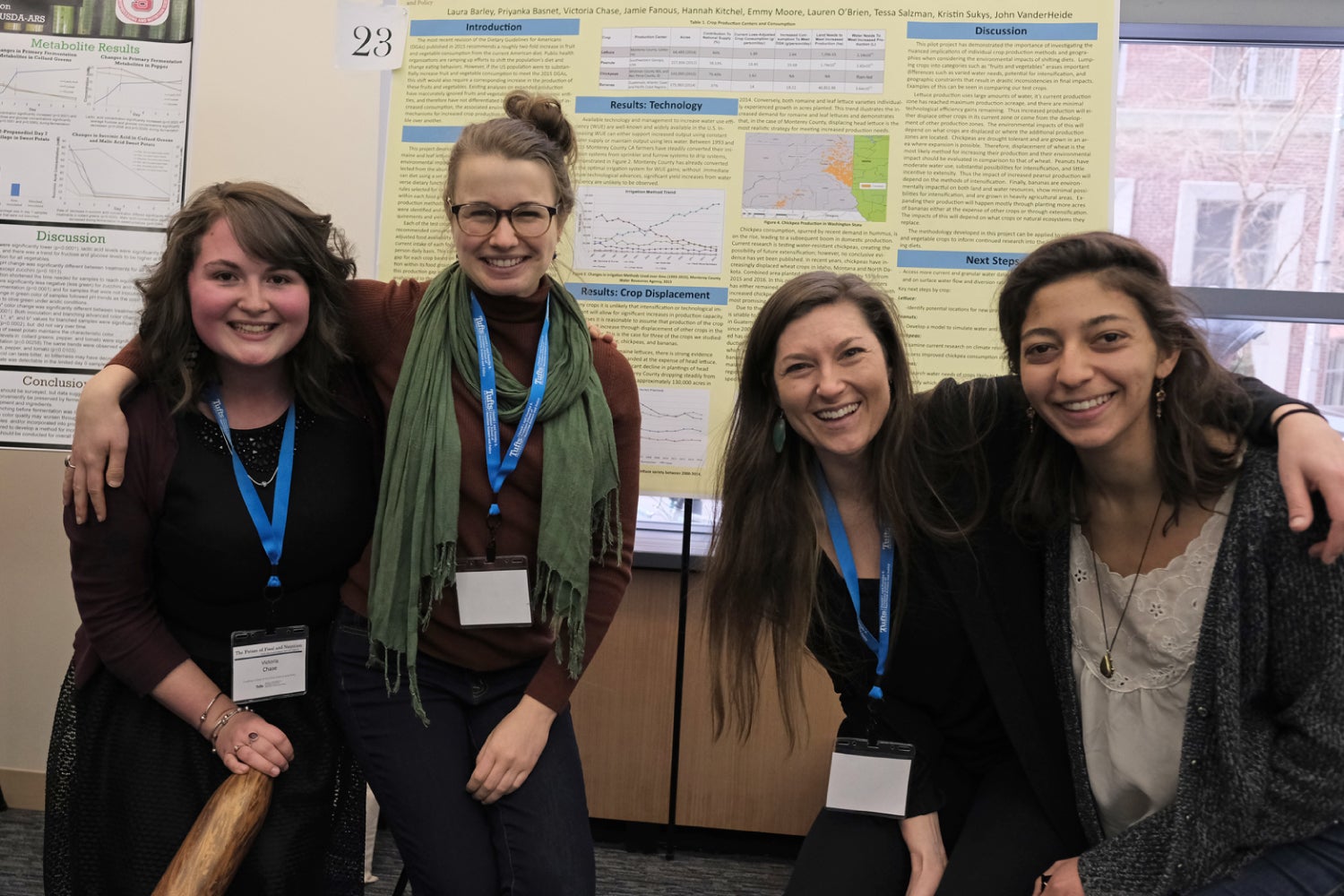
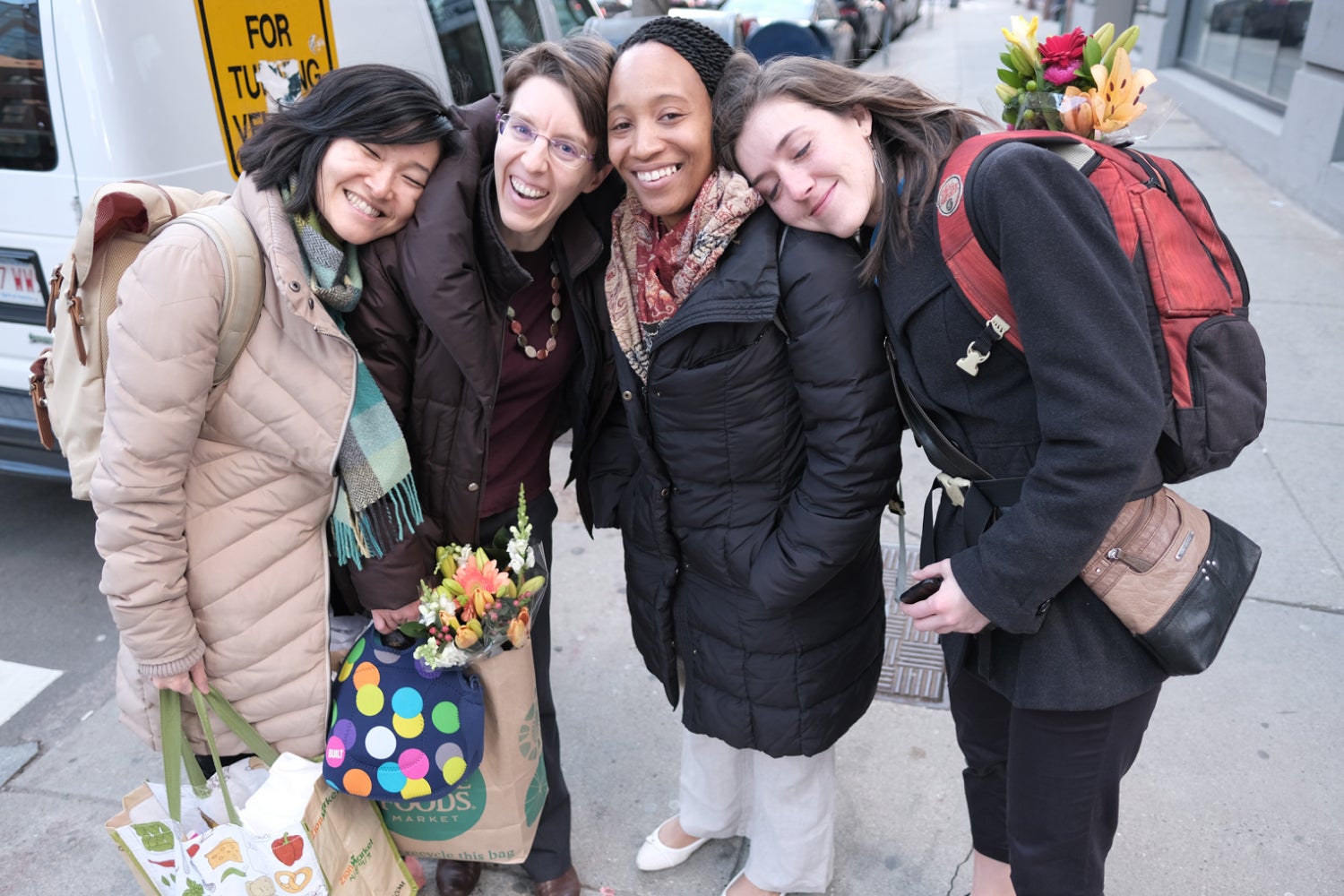
The Future of Food and Nutrition Graduate Student Research Conference (SRC), planned annually by a dedicated group of graduate students at the Friedman School, provides a unique venue for other grad students to present original research related to food and nutrition. Historically, more than 200 attendees from over 30 different institutions have come together each year to hear students present research from diverse fields ranging from anthropology to nutritional epidemiology.
This popular event is an opportunity for both presenters and attendees to gain valuable professional experience presenting and discussing multidisciplinary research, as well as networking with fellow students and future colleagues – the next generations of leaders in the field.
The 2017 program opened with keynote speaker Helena Bottemiller Evich, Senior Food and Agriculture Reporter at POLITICO, whose topic was "Nutrition Policy in the Trump Era and Beyond." A wide variety of student presentations and poster sessions were punctuated by a panel discussion with Julian Agyeman, Ph.D., Professor of Urban and Environmental Policy and Planning at Tufts University, Ms. Sylvia Rowe, Dr. Richard Black, and Ms. Anne McHugh. The panel was moderated by Friedman Professor Parke Wilde, and featured a discussion about the future of the food and nutrition agenda, with a special emphasis on the importance and relevance of evidence in multi-sectoral work. Read one student's review of the SRC.
Entrepreneurship Initiative
Our Director of Entrepreneurship Education, Dennis Steindler, Ph.D., is leading the development of activities and initiatives that illustrate our commitment to creating a culture of entrepreneurship and discovery including:
- Courses and programs in entrepreneurship provide students with fundamental knowledge and skills
- Currently we are featuring the course Nutrition and Entrepreneurship, now available for Spring 2018
- We have already launched a new online certificate program Nutrition for Industry Professionals and Entrepreneurs Interactive workshops that focus in different aspects and applications of entrepreneurship
- Internships in a wide variety of innovative organizations focused in nutrition, foods, food systems and agriculture
- Mentoring by highly successful entrepreneurs, including Friedman School alumni and experienced entrepreneurs who are committed to working with Friedman School students
- An annual student pitch competition to commence in Spring 2018 Potential partnerships and themed challenges with existing food accelerators
- A new network of companies and organizations across the food space committed to an ecosystem of food entrepreneurship and innovation
A Changing World
Our faculty experts are regularly sought out by major news media for their opinions, knowledge, and experience in their fields as they pertain to the news topics and that matter now. From humanitarian crises and the complexities of food aid delivery, to nutrition trends and shifting governmental policy angles, Our faculty and research scientists are cutting through the noise and standing out as trusted voices in the growing media landscape. Below, Friedman Associate Professor and AFE Program Director Timothy Griffin talks with WGBH Greater Boston about how current trends in urban farming could help diversify our food supply as weather becomes increasingly erratic.
*Excerpted from article by Julie Flaherty for Tufts Now,
**Excerpted from studentconference.nutrition.tufts.edu
